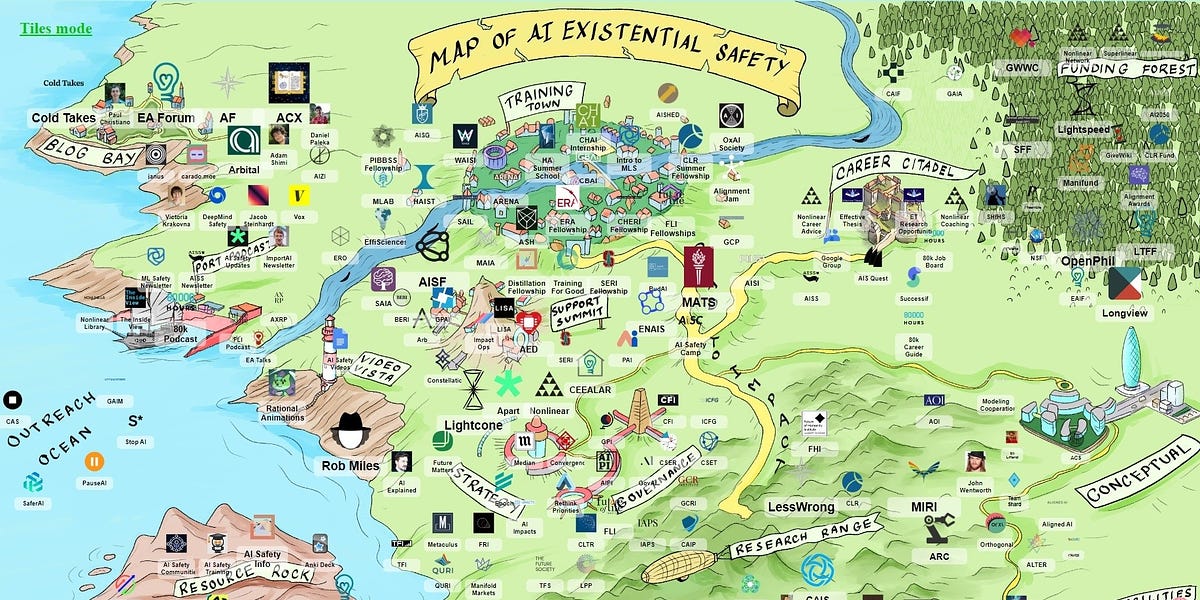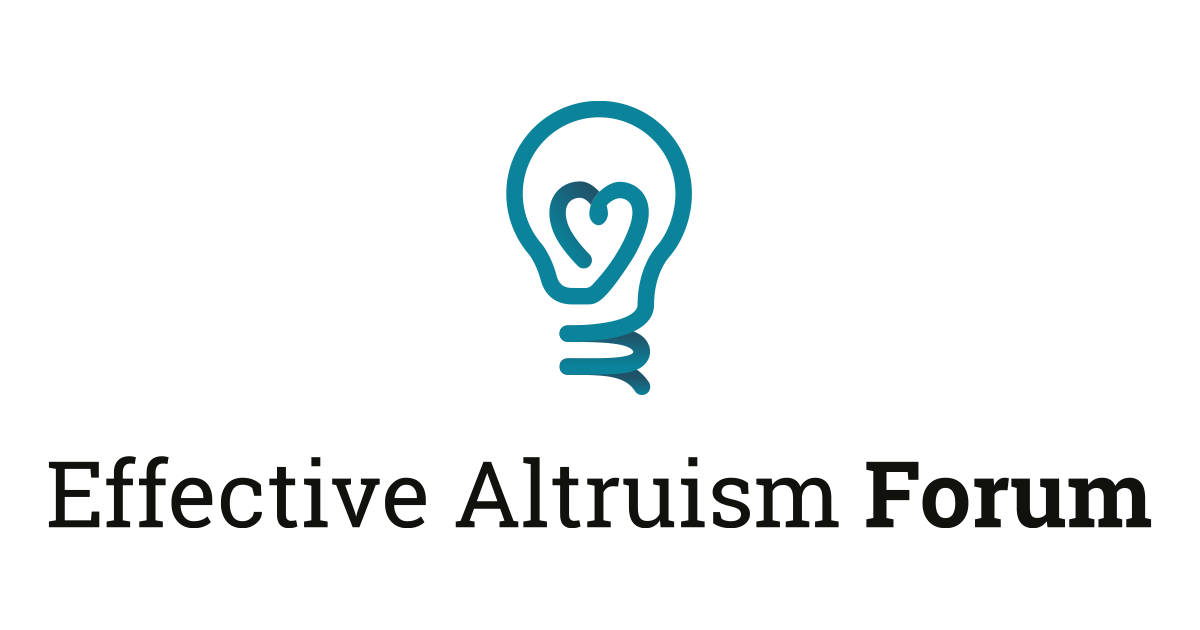- 16 Posts
- 69 Comments
When they made an alt-right equivalent of Patreon they called it “Hatreon”. This stuff is like a game to them.

 3·2 years ago
3·2 years agoI’d say it’s half-serious satire; she did end up dating a “high net-worth individual”, after all.

 6·2 years ago
6·2 years agoIf Caroline Ellison hadn’t been in an actual relationship with a “high net-worth individual” I would have said it was just straightforward satire, but given the context I think she’s using mask of irony to pretend she isn’t revealing her true self.
Her words may be satirical, but her actions were more like “this but unironically”.

 15·2 years ago
15·2 years agoHere is the document that mentions EA as risk factor, some quotes below
Fourth, the defendant may feel compelled to do this fraud again, or a version of it, based on his use of idiosyncratic, and ultimately for him pernicious, beliefs around altruism, utilitarianism, and expected value to place himself outside of the bounds of the law that apply to others, and to justify unlawful, selfish, and harmful conduct. Time and time again the defendant has expressed that his preferred path is the one that maximizes his version of societal value, even if imposes substantial short term harm or carries substantial risks to others… In this case, the defendant’s professed philosophy has served to rationalize a dangerous brand of megalomania—one where the defendant is convinced that he is above the law and the rules of the road that apply to everyone else, who he necessarily deems inferior in brainpower, skill, and analytical reasoning.
“post-rationalists”, essentially just rationalists who reject Yudkowksy’s anti-woo stance
I should probably confess I didn’t actually read the longer ones all the way through, for the reason you just demonstrated.
Yeah, seems doubtful they’d get along though I imagine both groups were present based on what I know of the rationalists.
Also lol at the gender ratio.
I should have said at least two sex offenders.
In other threads people are saying the victim was his 9 year old stepdaughter, but who knows?
Apparently Aella and Robin Hanson showed up at vibecamp too, I guess it’s a big deal for the greater rationalist community.
I apologize if you saw my post before the current edit, I was similarly confused.
To clarify, there are actually two sex offenders, Brent Dill ( @HephaistosF) and a friend of his, @chaosprime (haven’t discovered the real name yet). Someone recently posted @chaosprime’s criminal record showing that he was convicted of sexual assault in 2000.

 7·2 years ago
7·2 years agoSEO will pillage the commons.
My personal conspiracy theory (not sure if I actually believe this yet):
The idea that people would use generative AI to make SEO easier (and thus make search engine results worse) was not an unfortunate side effect of generative AI, it was the entire purpose. It’s no coincidence that OpenAI teamed up with Google’s biggest rival in search engines; we’re now seeing an arms race between tech giants using spambot generators to overwhelm the enemy’s filters.
The decision to make chatGPT public was not about concern for openness (if it was they would have made the earlier versions of GPT public too), it’s more that they had a business partner lined up and Google search had become enshittified enough that they thought they could pull off a successful “disruption”.
edit: The first draft of this comment was inaccurate, I was confused about what happened before because of a misleading tweet but I think I understand now. Anyways I found the background check tweet they’re referring to: https://nitter.net/mimi10v3/status/1737273351016525986
Also the occultist sex bakery guy has been weighing in on the drama: https://nitter.net/Morphenius/status/1736956594582368429
Since TPOT is defending sex offenders now I decided to go through more of Brent’s old livejournal and archive everything that seemed sufficiently creepy for the purposes of documenting it:
https://ialdabaoth.livejournal.com/6657.html
https://ialdabaoth.livejournal.com/7199.html
https://ialdabaoth.livejournal.com/7547.html
https://ialdabaoth.livejournal.com/8829.html

 11·2 years ago
11·2 years agoNo, they’re able to grasp the near term risks, they just don’t want that to get in the way of making money because they know they’re unlikely to be affected.

 6·2 years ago
6·2 years agoI did not. Got any details?
Also FWIW I discovered this yesterday: https://archive.ph/SFCwS
No idea if it’s true, but even if so I don’t think it would exonerate him (though it would put Aella in a worse light)

 11·2 years ago
11·2 years agoYudkowsky is pretty open about being a sexual sadist

 13·2 years ago
13·2 years agoIt’s worth noting that miricult.com went live about a year after Yudkowsky posted that.

 7·2 years ago
7·2 years agoHere’s the old sneerclub thread about the leaked emails linking Scott Alexander to the far right
Scott Alexander’s review of Seeing Like A State is here: https://slatestarcodex.com/2017/03/16/book-review-seeing-like-a-state/
The review is mostly positive, but then it also has passages like this:
Well, for one thing, [James C.] Scott basically admits to stacking the dice against High Modernism and legibility. He admits that the organic livable cities of old had life expectancies in the forties because nobody got any light or fresh air and they were all packed together with no sewers and so everyone just died of cholera. He admits that at some point agricultural productivity multiplied by like a thousand times and the Green Revolution saved millions of lives and all that, and probably that has something to do with scientific farming methods and rectangular grids. He admits that it’s pretty convenient having a unit of measurement that local lords can’t change whenever they feel like it. Even modern timber farms seem pretty successful. After all those admissions, it’s kind of hard to see what’s left of his case.
and
Professors of social science think [check cashing] shops are evil because they charge the poor higher rates, so they should be regulated away so that poor people don’t foolishly shoot themselves in the foot by going to them. But on closer inspection, they offer a better deal for the poor than banks do, for complicated reasons that aren’t visible just by comparing the raw numbers. Poor people’s understanding of this seems a lot like the metis that helps them understand local agriculture. And progressives’ desire to shift control to the big banks seems a lot like the High Modernists’ desire to shift everything to a few big farms. Maybe this is a point in favor of something like libertarianism?

 8·2 years ago
8·2 years agoWeirdly rationalists also sometimes read this book and take all the wrong lessons from it.
Scott Alexander is a crypto-reactionary and I think he reviewed it as a way to expose his readers to neoreactionary ideas under the guise of superficial skepticism, in the same manner as the anti-reactionary FAQ. The book’s author might be a anarchist but a lot of the arguments could easily work in a libertarian context.







Sorry, don’t know how that happened
https://nicholasdecker.substack.com/p/why-your-children-shouldnt-be-your